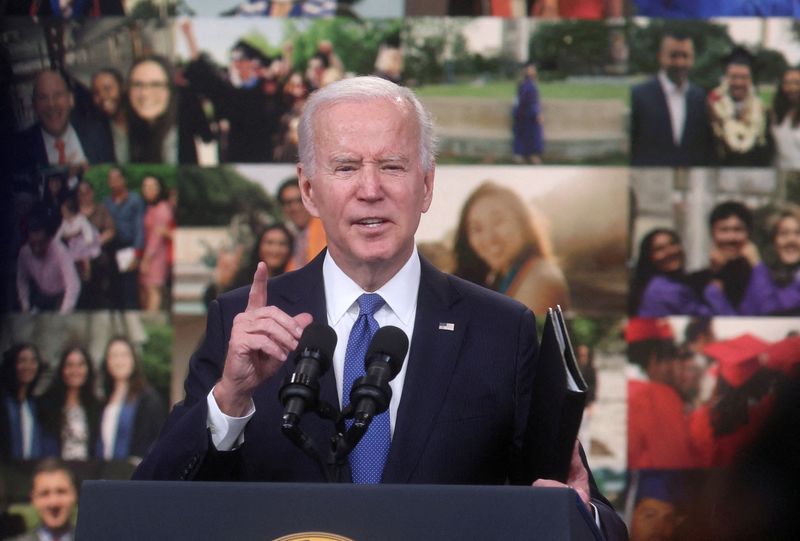By Andrew Chung
(Reuters) -President Joe Biden's administration on Friday asked the Supreme Court to lift a lower court's order blocking his plan to cancel billions of dollars in student debt in a challenge brought by six Republican-led states.
In a policy benefiting millions of Americans, Biden announced in August that the U.S. government would forgive up to $10,000 in student loan debt for borrowers making less than $125,000 a year, or $250,000 for married couples.
Biden's plan was contested by six states who argued it skirted congressional authority and threatened future state revenues. A federal judge dismissed their case for lacking legal standing, though St. Louis, Missouri-based 8th Circuit's Nov. 14 ruling blocked the program while the states appeal the judge's decision.
The Justice Department in a filing has now asked the high court to vacate that decision, saying it leaves millions of economically vulnerable borrowers in limbo.
The department also suggested the high court could bypass the appeals court and hear the dispute itself on an expedited basis, with a decision by the end of June.
The government is also contesting a separate ruling by a federal judge in Fort Worth, Texas, that also threatens the debt-relief program. U.S. Judge Mark Pittman on Nov. 10 found the program unlawful as he sided with two borrowers who sued because they are ineligible for the program and believe their debt "should be forgiven too."
The administration stopped taking applications for student debt relief after Pittman's decision.
The Congressional Budget Office in September calculated that the debt forgiveness would cost the government about $400 billion. The program also said students who received Pell Grants to benefit lower-income college students will have up to $20,000 of their debt canceled.

Several legal challenges have been filed contesting Biden's authority to cancel the debt under a 2003 law called the Higher Education Relief Opportunities for Students Act, which lets the government modify or waive federal student loans during war or national emergency. Biden's administration asserts that the COVID-19 pandemic represented such an emergency.
The policy, which has drawn opposition from Republicans, fulfilled a promise that the Democratic president made during the 2020 presidential campaign to help debt-saddled former college students.